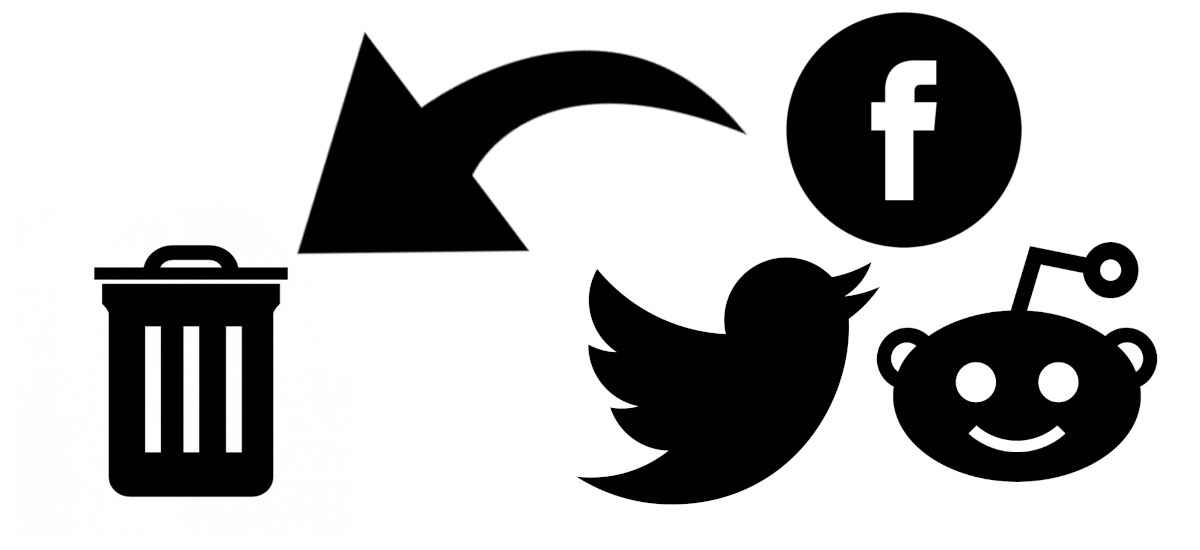Thinking back to the most prominent case of tech themed harm, from personal experience, it’s something that I’ve seen afflict many others in my life. To best explain it though I’ll split it into two components. The first of these components is that internet dialogue is molded in this sort of idea to never agree. That’s not to say that individuals have to agree on everything or find a middle ground on literally every idea or case of discourse, but internet disagreements often reach a level beyond what one would expect. That is, individuals online can often jump at each other’s throats in very ugly and aggressive ways. Perhaps it’s out of lack of accountability, body expressions to provide deeper meaning, or just general tone of voice to provide context. Whatever the case, internet conversations all too often devolve. With individuals you know quite well this can be an untrue statement, but when around strangers it can be better to not interact. This… quite differs from my experiences outside of the internet, as I’ve never had such hostile conversations with those face to face with me.
Moving past that first point, the second is a sense of conversational anxiety. The anxiety I want to specifically focus on is specific to cases where individuals are anxious about how another feels about a comment, or if they’ll even respond. This feeling is a clinging doubt that grips the heart of someone who wants social interaction and lacks a direct way to know if an individual has rejected an interaction. Why this anxiety might become a sort of normal feeling for someone can be for any reason between just normal human needs being unmet… to previous abusive interactions leaving a harsh mental toll. Regardless of the why and what online anxiety is, I’ve witnessed it take a harsh toll on an individual’s ability to function. One individual I know has had their life completely destroyed, dropping out of school and turning to alcoholism. Another individual suffered, for a long time, from suicidal tendencies. Of course, these are just two cases I’ve witnessed first hand. In my social circles I’ve learned of many more cases, many of which were also cases of suicidal tendencies caused by anxiety. Anxiety, left unsupported, has an unfortunate tendency to lead to depression. Sometimes it felt like the reason I was logging onto a social platform was not for some personal gain, but to make sure my friends were still okay. Without question, the fact I can make that statement is messed up.
To summarize, the case of tech harm I’ve described is one that preys on the human need for social interaction. Humans are, and always have been, a communal species that cooperates for the good of a whole. Our need to be social is a fundamental part of our species, as it is for many animal species as well. While online interaction gives us a potentially near instant shot of socialization, it can be brutally taxing when that perceived instant boost never comes for a half hour or longer. While those of my generation, and the generation behind me, may treat online interactions as a replacement for face to face it’s not nearly as healthy for one’s mental health. Furthermore, the removal of face to face interactions doesn’t support the ability for individual’s to process discussion and disagreement. Everything from tone of one’s voice to their expression greatly impacts the flow of conversation and how one perceives another’s statement. Human ability to verbally communicate pre-dates written language, we are handicapped without seeing our fellow individual.
The fastest solution, but most destructive towards the idea of using our technology, is to just bring people into more constant physical face to face meetings. Since that is an unreasonable idea however, using voice calls is the obvious alternative. To make these calls optimal though they would need video feeds, so that individuals can perfectly comprehend the full breadth of meaning behind each other’s statements. Sadly this raises a potential privacy risk due to the potential theft of video feeds, and it will come down to Computer Scientists like myself to solve that problem. In terms of how apps can aid in this, I feel many are already doing their part. Applications, such as Discord, already provide the means to use a camera or desktop feed. What would be of greater use than an app change would be making desktop cameras a societal norm, and making the use of cameras in online interactions a something of a norm.
To further elaborate on a single point, making the use of camera based online interactions a greater norm will require a shift in commonly used applications. Right now many text based services (Twitter, Reddit) hold popularity over voice call services (think Skype, or Discord’s voice chats). I alluded to this fact, but video feeds provide an inherent privacy risk. Video feeds on Twitter or Reddit, as a norm, is dangerous for user privacy. As such, the best course of action is to shift users to social platforms that follow different frameworks that better support secure and enclosed communities. In that way some routes towards privacy loss are sealed, limiting the area of attack. This, in turn, can lead to creating practices that entice users to share more face to face conversations without raising ethical concerns.
Articles Used:
- https://www.pewresearch.org/internet/2018/04/17/the-future-of-well-being-in-a-tech-saturated-world/
- https://www.businessinsider.com/technology-negative-bad-effects-society-2019-8
(Yeah I used the long run and another, couldn’t help it since I preferred the large quantity of information over “big text, single page, limited info”.)

You must be logged in to post a comment.